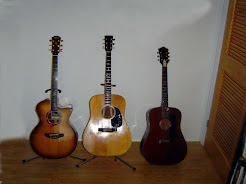17
IT AIN’T NECESSARILY SO, OR FUN WITH FACTS.
Historically speaking, history is usually written or re-written to reflect the viewpoint of the victors. Once written it soon becomes an accepted fact, and the reality of the events soon become consigned to the “Urban Legend” side of history. The new version bears some resemblance to fact or, it would not be believable enough to stand the test of time, and, of course, as more time passes it becomes more believable. This is a standard “practice” dating back to the oggs, (remember the oggs?), and has been perfected over time as propaganda techniques have improved through the better understanding of our primitive “instincts” and has reached its culmination with the advent of psychology.
I don’t intend to delve into specifics on the subject as this would make it too easy to determine if I am telling the truth or, stretching the facts a little, and I see no reason why I should have to abide by rules that the historians have yet to carve in stone.
Some parts of history have been stretched to the point where historical figures become larger than life, their actions become legendary, and the subject matter of Epic Tales. This was more easily accomplished in our early history as the oggs tended to believe just about anything thrown at them, for example the tales of Homer, the Arabian Nights, King Arthur, etc. The advantage of epic tales is that we “should” know that the facts have been stretched to make for a better story or to accent some moral character the author is trying to purvey. The problems occur when the Epic Tale is stretched to change the facts but not enough to render it unbelievable.
On the other side of the fence, we have the metaphorical tales told in most of the religious works, passed down through time and tweaked here and there to reflect the mindset of the time. Some of these stories are indeed factual accounts, while others are an obvious attempt to render a moral viewpoint in metaphorical terms. The vast majority of the latter appear in the majority of religious beliefs, in nearly identical accounts of epic tales predating the written history of the respective religions. The tree of knowledge, the great flood, death and resurrection, are just a few of the themes that repeat throughout religious history, and tend to suggest real events passed on through word of mouth, until some fool learned to write. It was sort of the world’s oldest running game of Chinese whispers or Telephone.
Chinese whispers or Telephone is a game in which each successive participant secretly whispers to the next a phrase or sentence whispered to them by the preceding participant. Cumulative errors from mishearing often result in the sentence heard by the last player differing greatly and amusingly from the one uttered by the first. It is most often played by children as a party game or in the playground. It is often invoked as a metaphor for cumulative error, especially the inaccuracies of rumors. (http://en.wikipedia.org/wiki/Telephone_game)
Basically all history is suspect if it precedes the written documentation of the events, and even then, it is suspect until multiple copies, (too many to recall and re-write), were in circulation. Lies of omission, metaphor, the occasional tweak here and there by the current ruling class, typos, poor memory, Chinese whispers, all tend to blur the lines between Historical Fact and Historical Fantasy.
The current history of oggdom is being written and re-written on a daily basis in our various forms of media, newspapers, magazines, television, movies, etc, and is heavily influenced by the “ruling class”. It is “tweaked” on a daily basis to influence our thinking and to get us “on board” with the current goals of the respective rulers.
Basically everything should be taken with a grain of salt, and the truth will eventually come out, (in one form or another), in the end, maybe, someday.....

(Next issue, Proof that the meaning of life is "In this style 10/6.")



